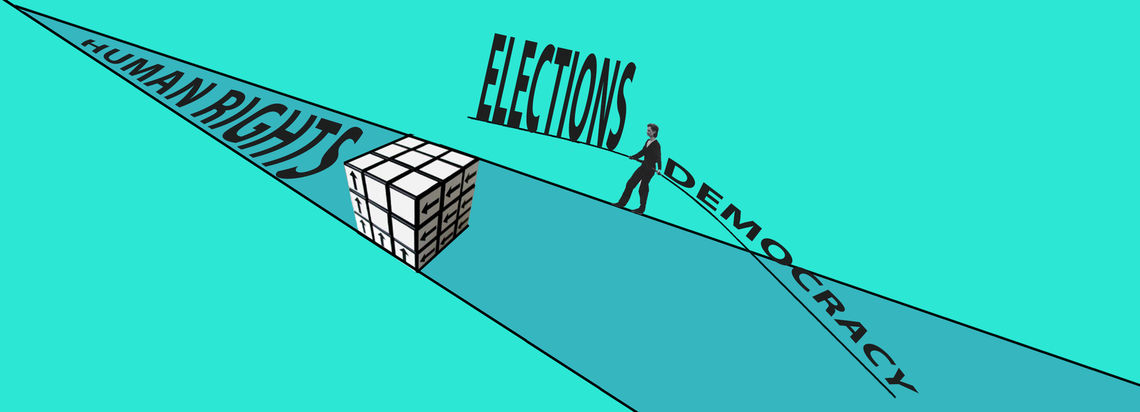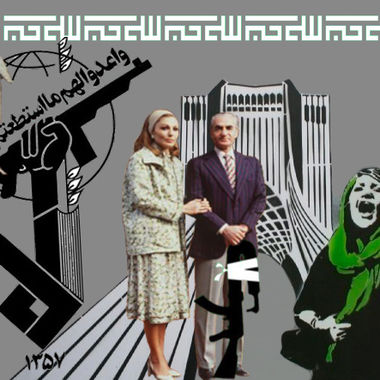
Since the “Velvet Revolution” in May, the public debate has centered on the necessity to hold free and fair elections. The transitional government has attempted to both reform the electoral law and fight corruption aimed at diminishing or eliminating incentives for corrupt practices, such as vote-buying. With snap parliamentary elections scheduled for December 9, there is a historic opportunity to set the foundations for a democratic state. Fair and free elections, however, are only the first step. Armenia’s democratization would hinge on the willingness of political elites to make human rights the cornerstone of their agenda—the main guiding framework for policy making. This would require the state’s commitment to promote liberal values and adopt redistributive economic policies.
Electoral competition and institutions of democratic governance are basic requirements for a democratic state. Democratic governance, however, is more than democratic processes and institutions. Democratic quality of a state depends on the advancement of freedoms and liberal values, such as freedom of speech and freedom of assembly. While it is widely assumed that democracy and human rights are interdependent and mutually reinforcing, Jack Donnelly in his “Universal Human Rights in Theory and Practice” highlights the tensions between democracy and human rights. Democracy empowers the people, whereas human rights is about empowering individuals. The former gives the people—the collective—the authority to decide the political, economic, and social arrangements. The latter limits people by restricting the possibilities for political, economic, and cultural arrangements to those systems that would empower individuals. Prioritizing respect for human rights occurs in a liberal democratic state since “competing claims of democracy and human rights are resolved in favor of human rights.” In liberal democratic states, “some rights-abusive choices are denied to people…and some rights-protective choices are mandated.” It is prioritizing liberal commitment to individual rights, and not a commitment to empowering people, that makes current liberal democracies compatible with human rights. What is this argument’s relevance to democratization in Armenia?
Once a new parliament and a subsequent government are formed in January, the ruling elite should be more cautious about relying on the popular will to determine or legitimize certain policies. Instead, policymaking should prioritize the advancement of human rights for all. It should also pay specific attention to addressing those structural barriers, material or normative, that marginalize more vulnerable sectors of society. If the Armenian parliament is elected through a fair and free process, I hope that the elite would capitalize on their legitimacy to make essential, albeit at times unpopular, political choices that would set the foundations for a fair and just Armenia.
For example, the most striking case of tensions between democracy and human rights is the rights of the LGBTQ+ community in today’s Armenia. Certain political factions have been using the issue of LGBTQ+ rights to set a new agenda for the upcoming elections: a debate between those who fight to preserve traditional values versus those favoring demoralization of the Armenian society. By fearmongering, they hope to mobilize the conservative sectors of the society, attack Pashinyan’s government, and ultimately collect votes. Addressing these parliamentary factions, Pashinyan in his speech in parliament on November 1, stated that parliament “could” craft new laws that would limit the LGBTQ+ communities’ activities. Knowing well that Armenia will not be able to criminalize LGBTQs, or limit other freedoms, Pashinyan implied that if those parliamentary factions are not introducing any legislation, they should stop manipulating the public by using the LGBTQs as a pawn in their political agenda.
Pashinyan’s formulation was a tactful strategy to address a “contentious” topic prior to the parliamentary elections in December. It was, perhaps, the first time a leader was raising LGBTQ rights issues and was implicitly mocking those who manipulate it. His formulation, however, stirred debate in Armenian social media: some criticized him for missing the opportunity to discuss human rights, while others believed Pashinyan couldn’t say more given the conservative nature of Armenian society, especially prior to elections. One could perhaps understand the latter argument given the sensitivity of snap elections for Armenia’s future political development. However, such justifications are both unkind and dangerous and should never be normalized. Once we start arguing that human rights of certain groups should become a secondary issue since society is not ready, we open the door for ideas that question the universality of human rights. If organizers of any civil rights movements waited until society was ready, we would not be enjoying many rights today.
Therefore, the point of reference for such discussions should be human rights treaties; the debate should take place within the framework of the state’s responsibility to protect individual human rights. Categories such as LGBTQ, women, religious minorities, or persons with disabilities exist because individuals have been systematically denied equal rights or equal opportunities/treatment. It is the state’s responsibility to address those sources of disempowerment, obliterate material and cultural sources of inequality, and ultimately create an equal playfield for individuals. In doing so, sometimes, the state should adopt unpopular policies. For example, improving the domestic violence law and its persistent implementation might be unpopular; the opponents might frame it as an attack on traditional family values. However, it is necessary for guaranteeing women’s safety and basic human rights.
by the same author
Politics of Exclusion
By Loosineh Markarian
How the Trump administration's travel ban left Iranian-Armenian scholar Loosineh Markarian feeling as though she had to apologize for her existence and her right to occupy public space.
The Question of Iranian Power-Sharing
By Loosineh Markarian
Iran was rocked by a number of protests last week that caught many by surprise. Loosineh Markarian writes that while many have been focused on the interrelation of the elite and the protestors, recent developments in inter-elite relations could be the significant factor informing the recent outburst.
Winning votes, public attitudes, popular viewpoints, or cultural relativist arguments should not be a point of reference for decision-making for certain issues. Right-abusive views—no matter how representative of people’s will—would hamper the process of advancing individual human rights, and subsequently instituting liberal democracy. Of course, we can discuss the best strategies to advance human rights. We can argue over the effectiveness of tools or different approaches to advancing human rights. However, the discussion should always take place within the framework of human rights and the promotion of liberal values. Debating the effectiveness of strategies is different from prioritizing order over human rights.
Subordinating the public will to human rights is the distinctive feature of liberal democracies. Similarly, prioritizing social and economic rights over market efficiency is the cornerstone of a rights-protecting economic system—a welfare state. Similar to human rights and democracy, Donnelly also argues that the relationship between development and human rights could be contentious. This is specially true if economic development strategy focuses on promoting GDP growth at the expense of certain groups’ human rights, even for a short period. It is assumed that the aggregate growth, the benefits to the collective, outweighs the harm it could cause to the individual rights of certain groups who might pay the price for overall development. Conversely, prioritizing justice over efficiency would require a focus on human rights, as opposed to marketization. Development is compatible with human rights in welfare states where the state takes initiatives to protect economic and social rights of the individual. While economic efficiency is necessary, there should be a balance between marketization and the state’s role in decommodifying basic entitlements and hence making citizens independent of market forces. Welfare states play active roles in decommodifying social entitlements and basic rights such as healthcare and education.
The ongoing debates around the impact of the tax reform policy, environmental consequences of mining in Armenia, or pension system reforms are excellent examples of such tensions between economic efficiency and human rights. While balancing economic efficiency and human rights would be a big challenge for the future government, civil society advocacy to promote rights-protective socio-economic policies is laudable. In the current stage of Armenia’s political and economic development, human-rights oriented civil society groups have a crucial role to play. By pressuring the government to uphold its commitments to protect human rights, by holding officials accountable, by providing expertise, and collaborating with the government to solve problems, civil society can become an essential partner in establishing a fairer state and society.
Once the parliamentary elections are over, the demanding work of democratization and development begins. I hope that the elite would base their decisions on advancing liberal values and supporting the socio-economic rights of the individuals. Using their political capital to set the foundations for a rights-protecting political and economic regime would be the biggest public service to the Armenian people.





